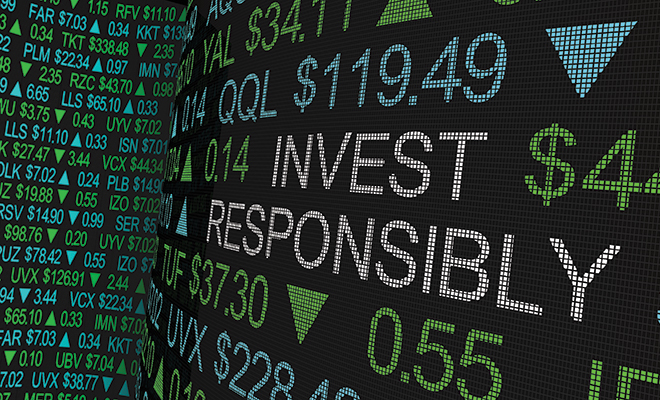
Socially Responsible Investing
People, planet and profit: how these three interconnect within the world of investing has become increasingly important, not only to investors, but to companies and their stakeholders.
This need to measure and demonstrate areas of impact has become a benchmark for social responsibility. And it allows investors to effect change in ways never imagined. Whatever an investor’s interests, be it consumer protection or renewable energy, there are investment opportunities to satisfy those interests.
The question is: does it matter to you enough? Before you invest in a company, do you take the time to review the company’s existing messages and materials to truly understand the mission of their work and the essence of its outcomes? If you are a stock market day trader, does it matter what a company stands for before you hit the buy button?
If you answered yes, then you are what is commonly referred to as a socially responsible investor, also known as an ethical investor. This growing field of investment strategy has its own portfolio policies that deal with the moral as well as the financial performance of leading sustainability-driven companies worldwide.
But does socially responsible investing bring about a positive return for your investment, as well as bring about positive change within the social and environmental parameters?
While conventional investing focuses on the traditional risk and returns in making investment decisions, socially responsible investing considers other ethical factors. Whether it pays financially to be ethical or not in making your investment decisions is still debatable.
Several studies have shown there is no conclusive evidence as to which performs better. According to a 2018 report on responsible investing trends, total U.S. assets using sustainable investment strategies grew from $8.7 trillion at the start of 2016 to $12 trillion at the start of 2018, a whopping 38 percent increase! Put another way, this represents 26 percent, or one in four dollars, of the total U.S. assets under professional management.
One thing is certain. This growing market is here to stay, whether it outperforms traditional investing or not.
Some say the origins of socially responsible investing date back to the year 1758, when the Quaker Philadelphia Yearly Meeting prohibited its members from participating in the slave trade. The modern era evolved during the political climate of the 1960s, when socially concerned investors sought to address equality for women, civil rights and labor issues. One example was Dr. Martin Luther King’s Operation Breadbasket project in Chicago that established a prototype for this type of investing, boycotts that directly targeted corporations.
Since the 1990s, other issues have been highlighted: tobacco, global climate change, governance, healthy working conditions, fair wages, product safety, ethical corporate behavior, violations of human rights, anti-gun violence, gross corruption, animal welfare, equal opportunity employment and gender lens investing that promotes workplace equity and general welfare of women and girls.
As a result of these efforts, it’s interesting to note that if you are a socially responsible investor, you have been represented in the past by this and ongoing shareholder activism efforts to positively influence corporate behavior. Your advocates continue to initiate conversations with corporate management on issues of concern and submit and vote on proxy resolutions.
The belief is that social investors like you, working cooperatively, can steer management on a course that will improve financial performance over time and enhance the well-being of all the corporation’s stakeholders: customers, stockholders, employees, vendors and communities. There are even investor relations activism movements in which investor relations firms assist groups of shareholder activists in an organized push for change within a corporation.
In addition, several regulations exist that govern shareholder resolutions, filed by a wide variety of institutional investors, including public pension funds, faith-based investors, socially responsible mutual funds and labor unions. The regulations vary, but in the United States they are determined by the Securities and Exchange Commission and require pension plans and mutual funds to disclose how they voted on behalf of their investors.
So if you are one of the millions of concerned socially responsible investors or want to diversify into this area, do your research. There are financial professionals and institutions that have been around a long time and have a posted track record. Be sure to delve into the types of sustainable investments and use the three most recognized categories to break it down: environmental, corporate governance and social.
Above all, be sure to take the appropriate amount of time to become familiar and comfortable with this growing industry. You may find that the more you learn, the more interested you may become. ■
Sources: bankrate.com, inc.com and investopedia.com.







